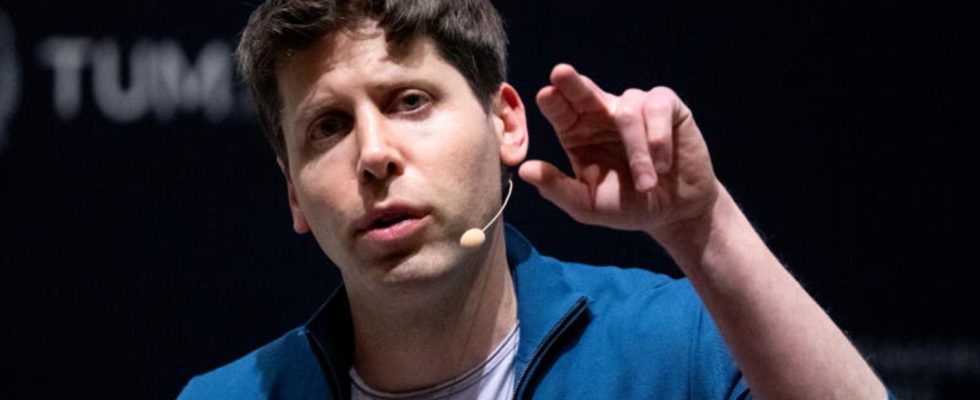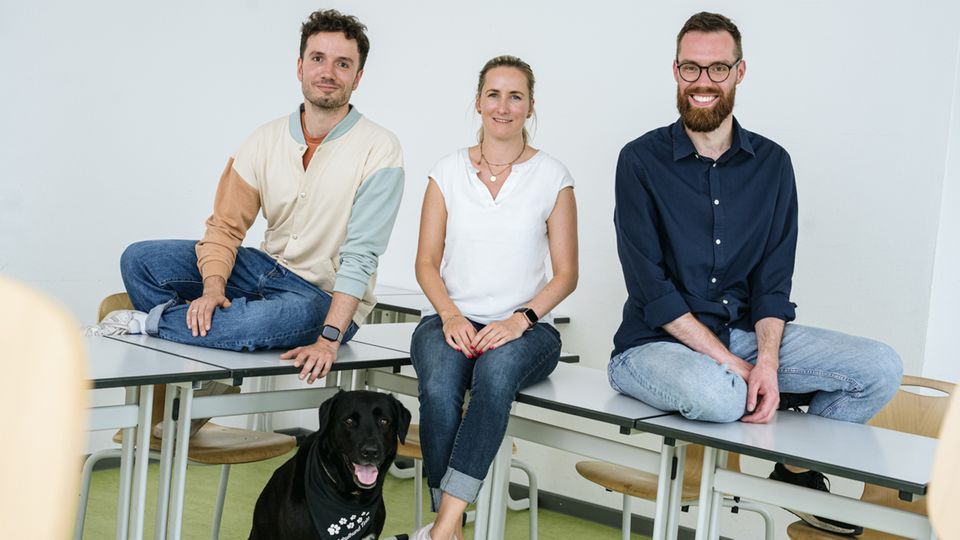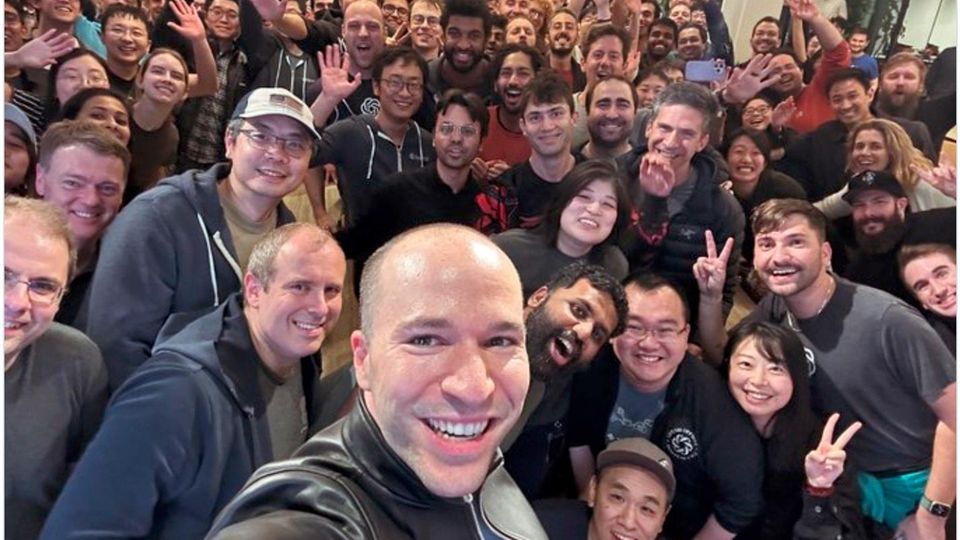“Small preview of what’s going on”
ChatGPT was a spontaneous idea – and even OpenAI was completely taken by surprise by its success
Sam Altman, managing director of OpenAI’s AI software ChatGPT
© Sven Hoppe / DPA
Almost a year ago, OpenAI released its voice AI ChatGPT – bringing artificial intelligence fully into the mainstream. But Sam Altmann’s company didn’t just surprise the competition.
It was as if the genie had been let out of the bottle. When ChaGPT was published at the end of November last year, the age of AI was dawning in society’s perception. Even the industry’s pioneers were completely taken by surprise. But people were probably most surprised by OpenAI. Because that ChatGPT, which was initially released, was actually only planned as a small test balloon.
This is what a large piece in the New York Times about the upheaval in the AI industry reveals. According to this, last November the AI start-up was actually working on GPT-4, the significantly superior language program that was published in the spring. But because the AI had problems with wrong answers, insults and even racism, publication was delayed further and further. Then a spontaneous decision was made that sparked wildfire in the industry.
Spontaneous decision with a big impact
CEO Sam Altman is said to have thought out loud in a meeting with some employees that an older version could be published as proof of concept. Altman, who made headlines last week with an expulsion and a surprise return to OpenAI, was keen to be first to market. Not to chase the big ones like Google or Facebook parent Meta. Instead, it was all about being faster than the much less well-known company Anthropic. It had been founded a good year earlier by former employees of OpenAI as a competitor.
So they decided to pack an older version of the voice AI into a user interface. And publish as ChatGPT. Previously, you could actually only operate the chat robot with a deep understanding of the technology. None of the participants at the meeting perceived it as a turning point in AI history, according to the “NYT”. “There won’t be more than a Twitter thread with 5,000 likes,” believed OpenAI President Greg Brockmann when he invited his team for a few drinks after work shortly before the release.
A leap forward
Things were supposed to be different. ChatGPT caused an earthquake in the industry. Not because people were impressed by the technology – Google and others had long since had their own programs that could do the same thing and sometimes more. But because they didn’t expect how much normal people would fall on ChatGPT. While the established companies had tried to eliminate all errors in order to be able to deliver a perfect product, the start-up had simply done so – and, despite the numerous quirks, had struck a chord with users.
This unexpected hype caused enormous pressure in the industry – and meant that previous caution had to be put aside for the time being. For years, the numerous AI announcements had met with muted interest; the same was expected for voice AI. Numerous companies decided somewhat hastily that they now had to follow suit. And a short time later they brought huge quantities of products onto the market that had previously matured in the laboratories. The real wave of AI assistants would hardly have been possible otherwise: developing AI using machine learning is extremely time-consuming and simply not possible over such a short period of time. For customers, the simultaneous impact, together with the almost simultaneous appearance of image AIs like Midjourney, still felt like a starting shot: the age of AI, which had only been expected in the industry for years, had now also begun in mainstream thinking.
AI for everyday life
Helpful tips on how to use ChatGPT sensibly without any prior knowledge
New thinking
It remains to be seen what consequences the spontaneous decision will have in the long term. The caution in AI development was also based on the fact that the consequences of artificial intelligence for the economy and society cannot be reliably predicted. A race for uncooked products could definitely lead to problems. At OpenAi, this led to a crisis two weeks ago: the cautious supervisory board fired Altman as CEO, probably also because he had not sufficiently reported on research breakthroughs and had rushed forward too quickly. Now Altman is firmly back in the saddle. And he won the battle between the brakes and those ahead for a second time.
Sources: New York Times, Washington Post




